
The Best Entrepreneurship Advice Ever Given: 8 Timeless Lessons to Build a Business That Lasts.
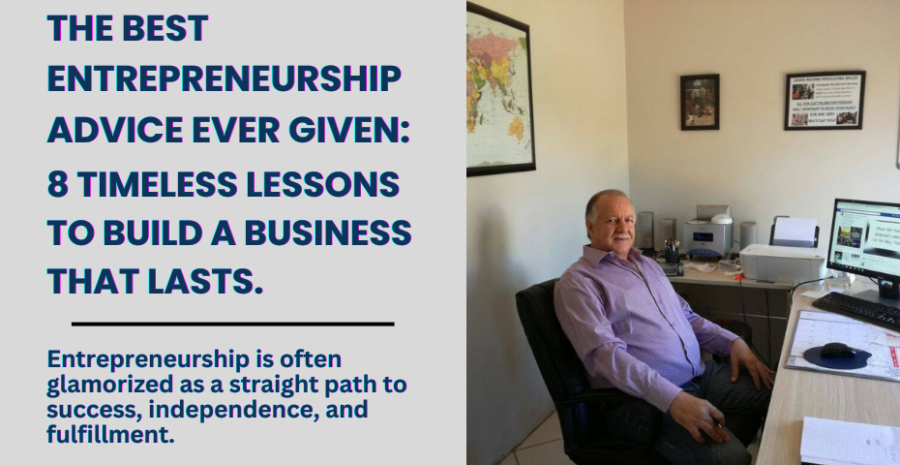
Entrepreneurship is often glamorized as a straight path to success, independence, and fulfillment. But anyone who has walked the path knows the truth—it’s a rollercoaster of uncertainty, sacrifice, breakthrough, and self-discovery.
It’s a journey filled with highs that make you feel invincible and lows that make you question everything. Amidst the chaos, the right advice at the right time can be a turning point—something that sticks in your mind and shapes how you lead, build, grow, and endure.
For many entrepreneurs, a single piece of advice has stood out from the noise, becoming a guiding compass. Whether it's a mindset shift, a financial principle, or a strategy for scaling, one golden nugget of wisdom can outshine a thousand tactics. It becomes the foundational truth that keeps you grounded, focused, and resilient.
I still remember the best advice I ever received as an entrepreneur: “Treat your business like a system, not a hustle.” That sentence changed how I approached everything. I stopped chasing quick wins and started building processes.
I shifted from doing everything myself to creating repeatable workflows that others could follow. I went from feeling burnt out to feeling in control. And perhaps most importantly, I realized that real entrepreneurship is not about working harder—it’s about building smarter.
Over time, I realized that the most successful entrepreneurs I admired all had their own versions of transformative advice—principles they lived by and taught others. These weren’t just motivational quotes. They were hard-earned truths forged through failure, persistence, and deep insight.
In this blog, I’m sharing 8 of the most powerful pieces of entrepreneurship advice I’ve ever received, witnessed, or shared—and how each one can be applied by anyone building a business today. These lessons are timeless, practical, and deeply transformative when put into action.
If you're just starting your journey, they'll give you clarity. If you're already in the trenches, they’ll help you refocus. And if you've tasted success, they'll remind you of what really matters.
Let’s dive into the best entrepreneurial advice—and how to actually use it to build something meaningful.
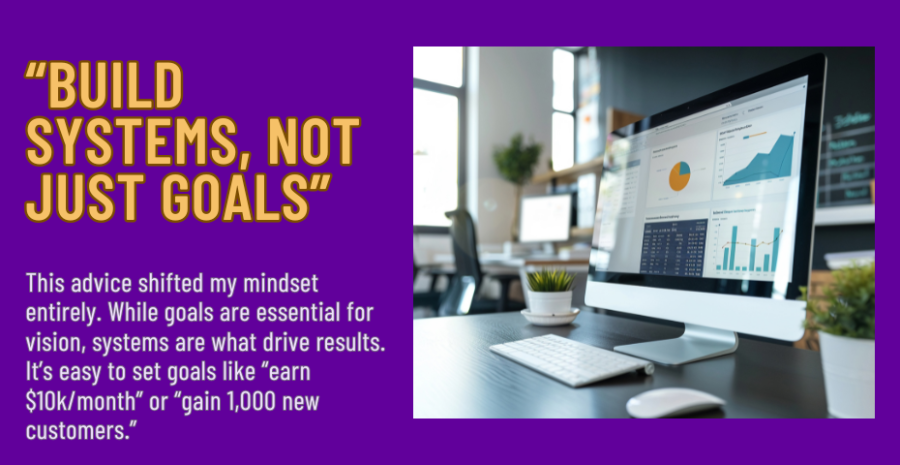
This advice shifted my mindset entirely. While goals are essential for vision, systems are what drive results. It’s easy to set goals like “earn $10k/month” or “gain 1,000 new customers.”
But without systems in place—daily actions, workflows, automations—those goals remain fantasies. I learned that instead of obsessing over outcomes, I needed to design habits and frameworks that produced consistent results.
For example, if I wanted more leads, I built a system for content creation, email nurturing, and landing page optimization. If I wanted more time, I built SOPs (standard operating procedures) so I could delegate.
Systems create freedom, predictability, and scale. Most importantly, they reduce decision fatigue and emotional ups and downs. Others can apply this by identifying key areas in their business—marketing, sales, delivery—and systemizing them step-by-step.
Tools like Notion, Trello, or ClickUp can help you map and manage these workflows.
Success isn’t about grinding harder—it’s about designing smarter systems.
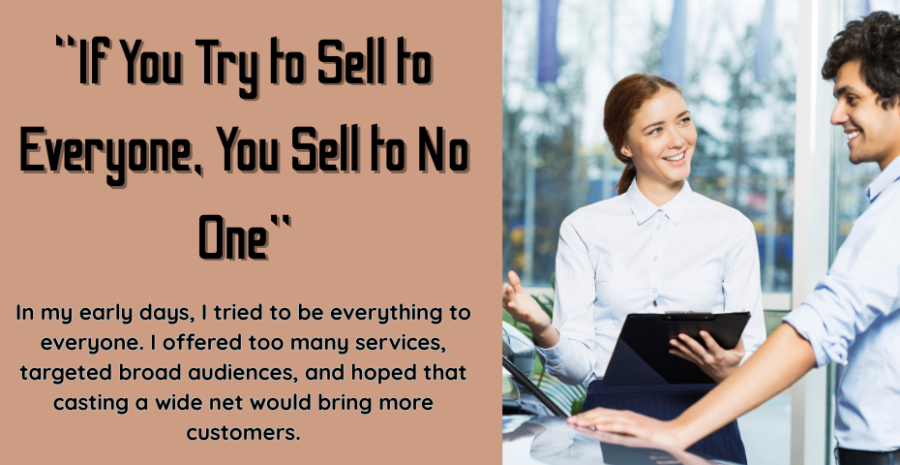
In my early days, I tried to be everything to everyone. I offered too many services, targeted broad audiences, and hoped that casting a wide net would bring more customers.
It didn’t. Instead, I attracted confusion, low-quality leads, and burnout. Then someone told me: “Niche down until it hurts.” The idea is simple: focus deeply on a specific problem, for a specific person, in a specific market.
That’s when the game changed. My messaging became clearer. My audience started to trust me more. My conversions increased.
Whether you’re launching a product, writing a blog, or running ads—clarity in your ideal customer profile is the foundation of effective marketing.
Others can apply this by defining their ICA (Ideal Customer Avatar), digging into their pain points, and creating solutions that speak directly to them.
You’ll never regret getting more specific.
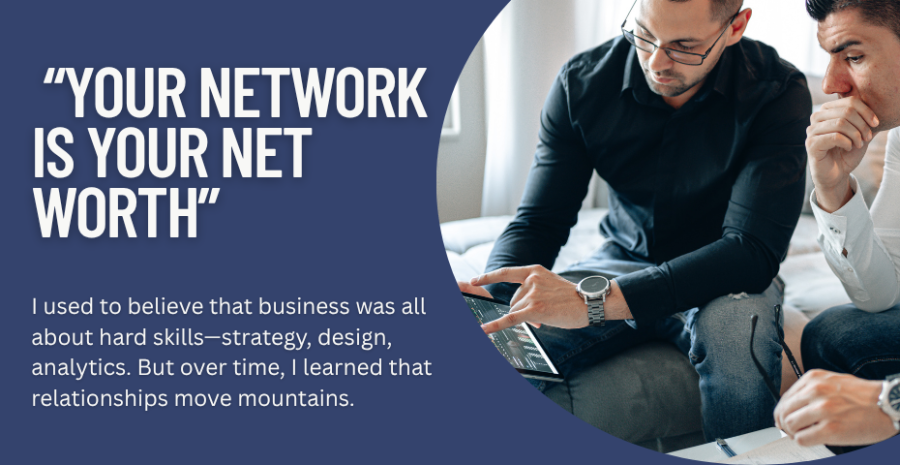
I used to believe that business was all about hard skills—strategy, design, analytics. But over time, I learned that relationships move mountains.
The right collaboration, the right mentor, the right introduction can fast-track years of struggle. After attending a mastermind event early in my journey, I realized how powerful the right room can be.
I connected with people who had already solved the problems I was facing. I gained feedback that improved my offers and accountability that kept me consistent.
Building a powerful network means showing up, giving first, and nurturing relationships. Don’t just connect—invest in people. Send value-packed messages, support others’ work, and create partnerships.
Whether online or offline, your growth will often come from who you know and how well you serve them.
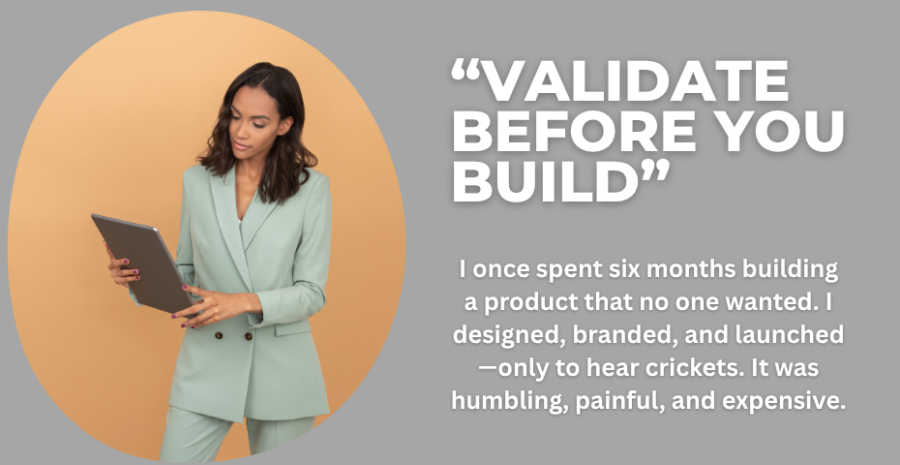
I once spent six months building a product that no one wanted. I designed, branded, and launched—only to hear crickets. It was humbling, painful, and expensive.
The best advice that could’ve saved me? “Sell it before you build it.” Validation is the process of proving that your idea solves a real problem for a paying audience.
That might mean running a pre-sale, building a waitlist, or offering a beta program.
Start by having real conversations with your audience. Ask them what their biggest challenge is.
Create a simple landing page and test demand with a low-ticket offer.
Once you confirm that people are willing to pay, then build it out. Others can apply this by resisting the urge to perfect before launching.
Test, learn, improve. Speed of feedback beats perfection.
.png)
One of the biggest shifts in my business happened when I stopped thinking like a seller and started thinking like a problem-solver.
Instead of promoting features, I focused on outcomes. Instead of pitching, I asked better questions.
What transformation does my product offer? What pain does it relieve? When you speak in the language of solutions, your marketing becomes magnetic.
It’s no longer about you—it’s about them. Others can apply this by doing customer research. Listen to how your audience talks about their struggles.
Use their exact words in your messaging. Don’t sell the drill—sell the hole in the wall.
The more you focus on solving meaningful problems, the easier it is to earn trust, charge more, and retain loyal customers.
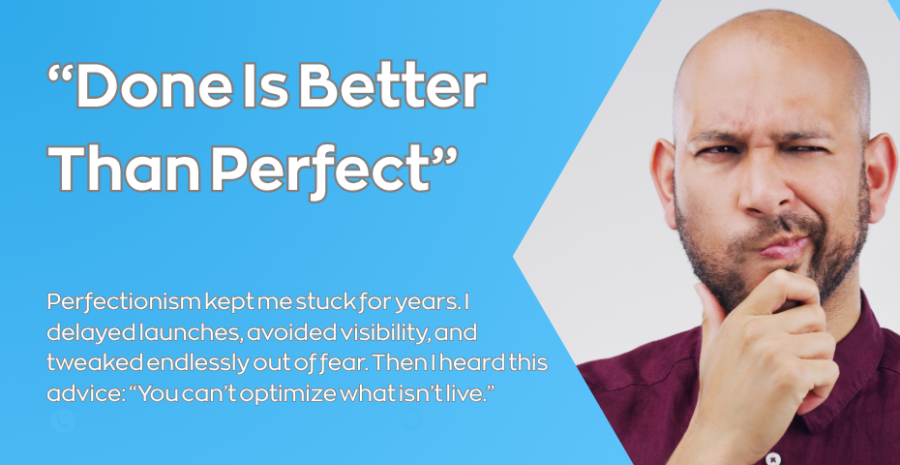
Perfectionism kept me stuck for years. I delayed launches, avoided visibility, and tweaked endlessly out of fear. Then I heard this advice: “You can’t optimize what isn’t live.”
Perfection is the enemy of progress. Momentum builds when you ship, learn, and iterate.
My first website? It was ugly. My first offer? Awkward. But they were real. They gave me feedback. They gave me growth.
Once I embraced version 1.0 thinking, I became more productive and courageous. Others can apply this by setting deadlines, committing to “good enough,” and trusting the process. Launch messy. Improve as you go.
Progress creates clarity, not the other way around.

No matter how exciting your brand looks on Instagram or how many followers you have—if the money isn’t coming in, your business is dying.
That was a wake-up call I learned the hard way. I was focused on visibility, not viability. I didn’t prioritize offers, pricing, or profit margins.
The best advice I got? Know your numbers. Track income, expenses, and profitability weekly. Create multiple streams of revenue.
Don’t rely on one client, one offer, or one platform. Cash flow gives you options, peace of mind, and the ability to reinvest in growth.
Others can apply this by building a simple financial dashboard, creating recurring income, and keeping overhead low.
Don’t just build a business—build a money machine that sustains itself.

Above all, the most powerful advice I’ve ever received is this: “Your business will never outgrow your mindset.” Entrepreneurship is a mirror.
Your habits, beliefs, and self-worth are reflected in your results. I realized that the best investment wasn’t in ads, tools, or branding—it was in me.
Books, courses, coaches, therapy, masterminds—all of it helped me grow internally so I could scale externally.
When I upgraded my thinking, everything else followed. Others can apply this by prioritizing personal development.
Journal daily. Reflect weekly. Get mentorship. Protect your energy. Growth starts with you.
Because you’re not just building a business—you’re becoming the person capable of leading it.
The best entrepreneurship advice won’t change your life unless you do something with it. Wisdom is worthless without application. Every piece of guidance you’ve read here has the potential to shift your business, your income, and your impact—but only if you apply it consistently.
Whether it’s systemizing your workflow, validating your idea, or investing in yourself, the goal is not to remember everything—it’s to act on something. Start small. Choose the piece of advice that speaks most to your current season.
Test it, live it, learn from it. Business growth doesn’t come from hacks—it comes from foundational truths practiced daily.
These 8 lessons weren’t just ideas—they were lifelines at different stages of my journey. They helped me overcome burnout, find clarity, and build something I’m proud of.
Now they’re yours. Take them, apply them, and make them your own. Because at the end of the day, the best advice isn’t what changes your business—it’s what changes you. Entrepreneurs don’t just follow trends—they follow wisdom.
And the wisest thing you can do is begin now.
Your time to thrive is now. One step at a time.
.jpg)
About: Andries vanTonder (66)
Over 46 years selfemployed
He is a Serial Entrepreneur, an Enthusiastic supporter of Blockchain Technology and a Cryptocurrency Investor
Find me: Markethive Profile Page | My Twitter Account | My Instagram Acount | and my Facebook Profile.
